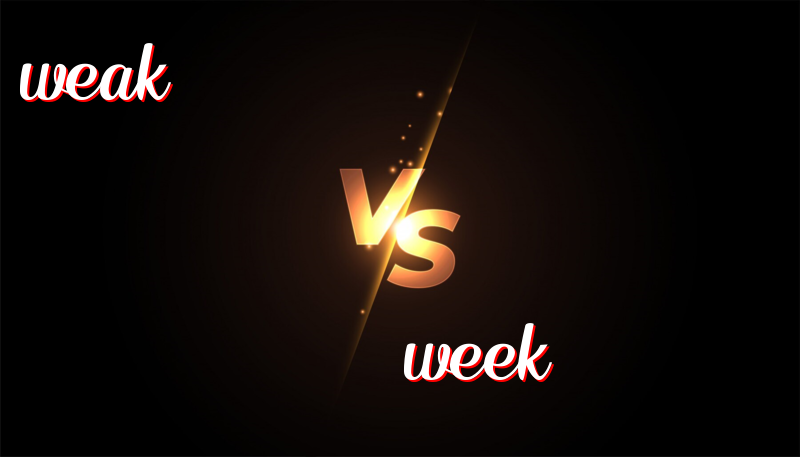Understanding the Difference Between Weak and Week
Weak vs. Week: Understanding the Difference
The words “weak” and “week” sound the same but have different meanings. These words are called homophones. Let’s explore these two words and learn how to use them properly.
History of the Words
“Weak” comes from the Old English word “wēac,” which means “lacking strength.” It describes something that is not strong.
“Week” comes from the Old English word “wice,” which means a “sequence of days.” It is used to talk about seven days in a row.
How to Use Them
Weak is an adjective. It describes a person, thing, or feeling that is not strong. For example, if you are tired, you might feel weak.
Week is a noun. It is a time period of seven days, like Monday through Sunday. For example, you go to school five days a week.
Trick to Remember the Difference
Remember: “Weak” with an “a” is for “a person or thing with less power.” “Week” with an “e” is for “seven days.” Think of “week” having a second “e” like the word “seven.”
Example Sentences for “Weak”
- I felt weak after running for an hour.
- The bridge is weak and needs repair.
- She was too weak to lift the heavy box.
- The tea is weak because it has too much water.
- He became weak after missing lunch.
Example Sentences for “Week”
- We have a math test next week.
- My birthday is one week from today.
- She works five days a week.
- The new movie is released this week.
- I visit my grandparents once a week.
Summary
To sum up, “weak” means not strong and is used to describe strength, while “week” means seven days. Remember, “weak” with an “a” is about power, and “week” with an “e” relates to time. With these tips, you can easily remember which word to use.

Leave a Reply
You must be logged in to post a comment.